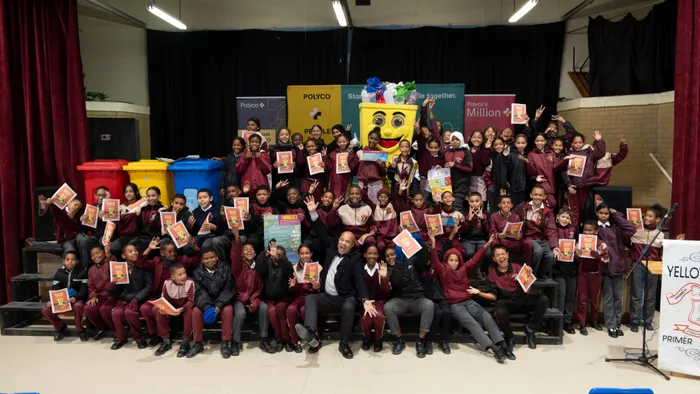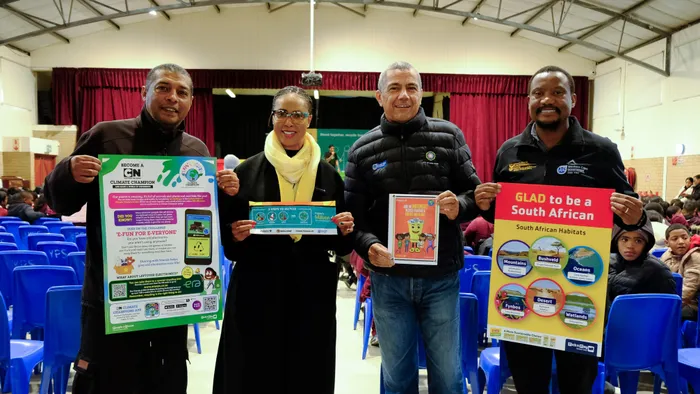Polyco's Schools-Based Recycling Programme expands to empower Mitchell's Plain communities

The Schools-Based Recycling Programme will roll out to 13 new schools this year, following successful pilot projects from last year at Vergenoeg Primary and Yellowwood Primary. The Yellowwood Primary pilot started last year but they officially launched Wednesday May 21.
Image: Supplied
In a meaningful step toward sustainability and community upliftment, Polyco is expanding its Schools-Based Recycling Programme (SBRP) to include schools in Mitchell’s Plain and 12 other communities across the Western Cape.
The area, long known for its challenges and potential, will now benefit from a programme that brings waste education, infrastructure, and income opportunities right to school grounds.
The SBRP will roll out to 13 new schools this year, following successful pilot projects from last year at Vergenoeg Primary School and Yellowwood Primary School. The Yellowwood Primary pilot started last year, but they officially launched Wednesday May 21.

From left are Ashley Damons, iThemba Phakama 4ps project manager, Lynette Mangozhe, Polyco Key Accounts representative, Marlon February, administrator and compliance officer at City of Cape Town and Ronald Mukanya, director for sustainability at the Western Cape Department of Environmental Affairs and Development Planning.
Image: Supplied
Over R380 000 is being invested per site. Schools in priority areas such as Mitchell’s Plain, Delft South, Gugulethu, Retreat, Hanover Park, Wesbank, Prince Albert (including Leeu Gamka and Klaarstroom), Cravenby, and Kuils River have been identified for the next phase.
Pupils, teachers, and local residents will work together to turn recyclables into learning tools, cleaner streets, and real economic value, said Patricia Pillay, CEO of Polyco PRO NPC.
Polyco PRO NPC is a Producer Responsibility Organisation (PRO) focused on managing the extended producer responsibility (EPR) obligations for plastic packaging in South Africa.
Through initiatives like the SBRP and Packa-Ching, Polyco promotes environmental education, boosts local recycling efforts, and helps to create jobs in communities where they’re most needed. Their approach links environmental sustainability with economic opportunity—giving waste value and people purpose.
Each school site will receive infrastructure for on-site recycling, support for job creation, and tailored recycling education.
Pupils will engage in hands-on activities, using visible tools like bins made from recycled plastic, while schools also serve as drop-off points for the wider community. The programme is supported by the Packa-Ching model, which enables local collectors to earn an income from recyclables, ensuring valuable materials are diverted from landfills and waterways.
“This programme is about turning schools into centres of opportunity,” said Ms Pillay. “It’s about jobs, education, and community. Youth learn about sustainability by living it.”
Ronald Mukanya, Director for Sustainability at the Western Cape Department of Environmental Affairs and Development Planning, said: “This is environmental education in action—developing responsible future citizens while uplifting communities.”
Related Topics: